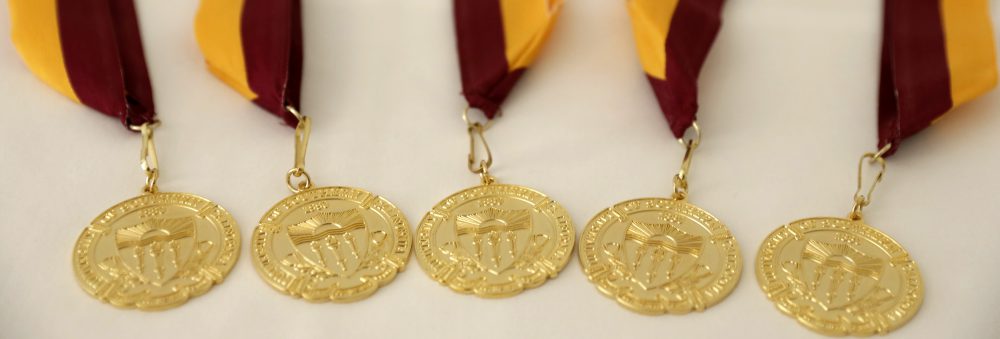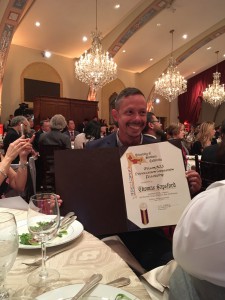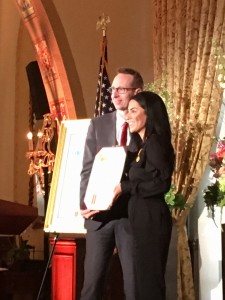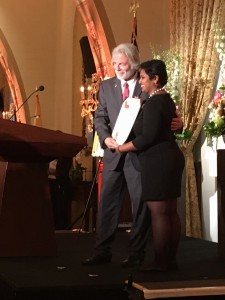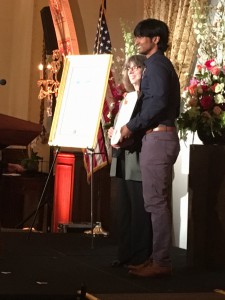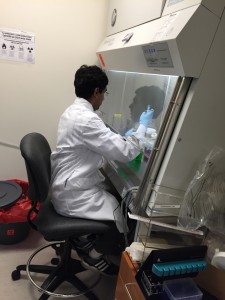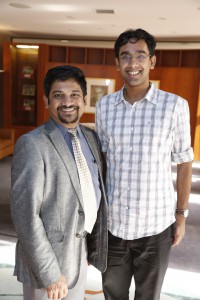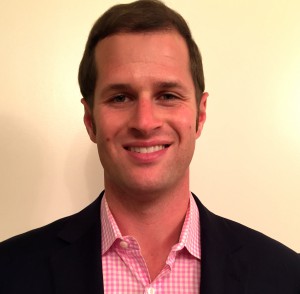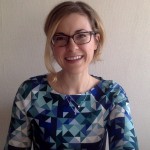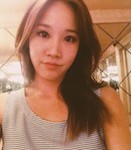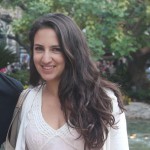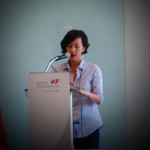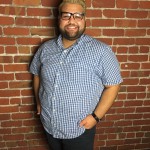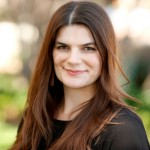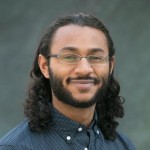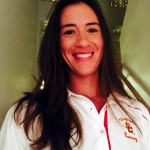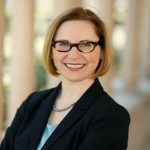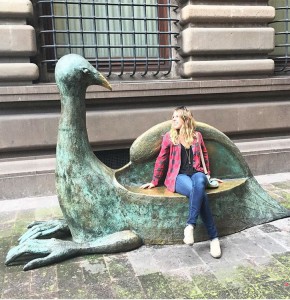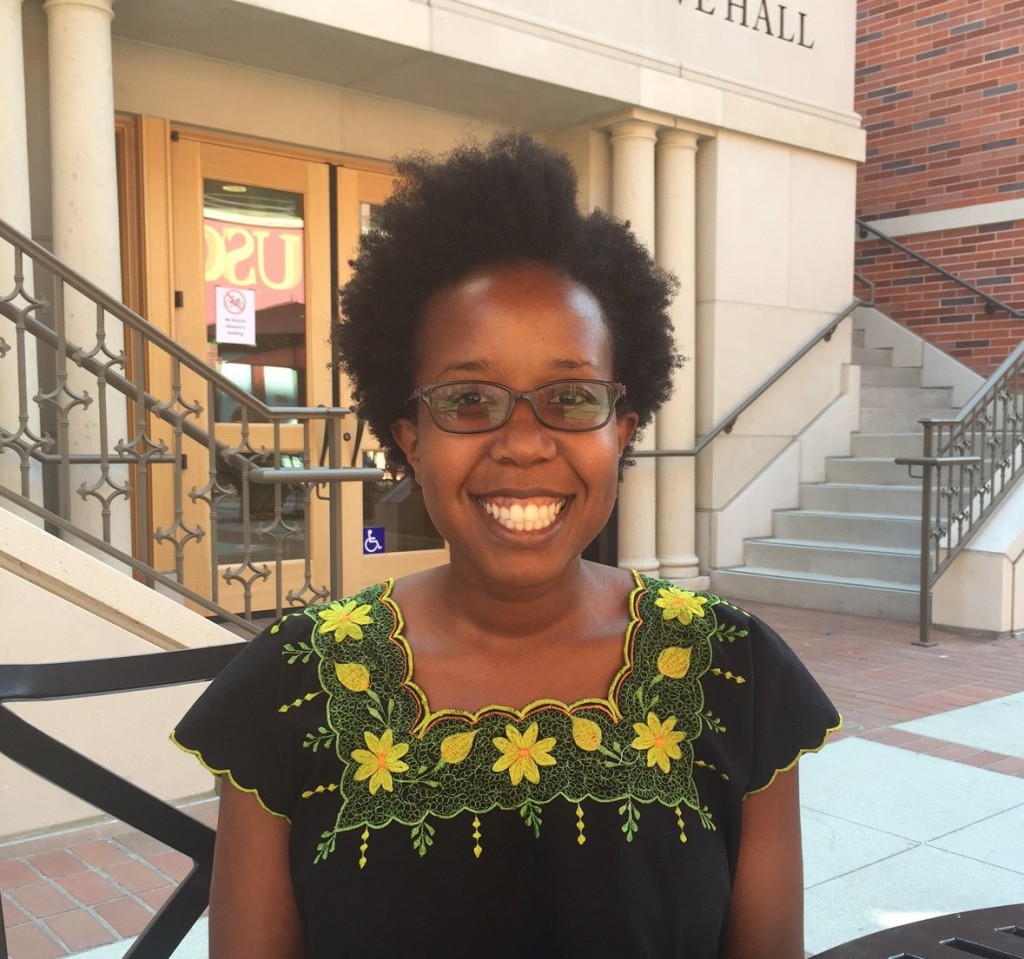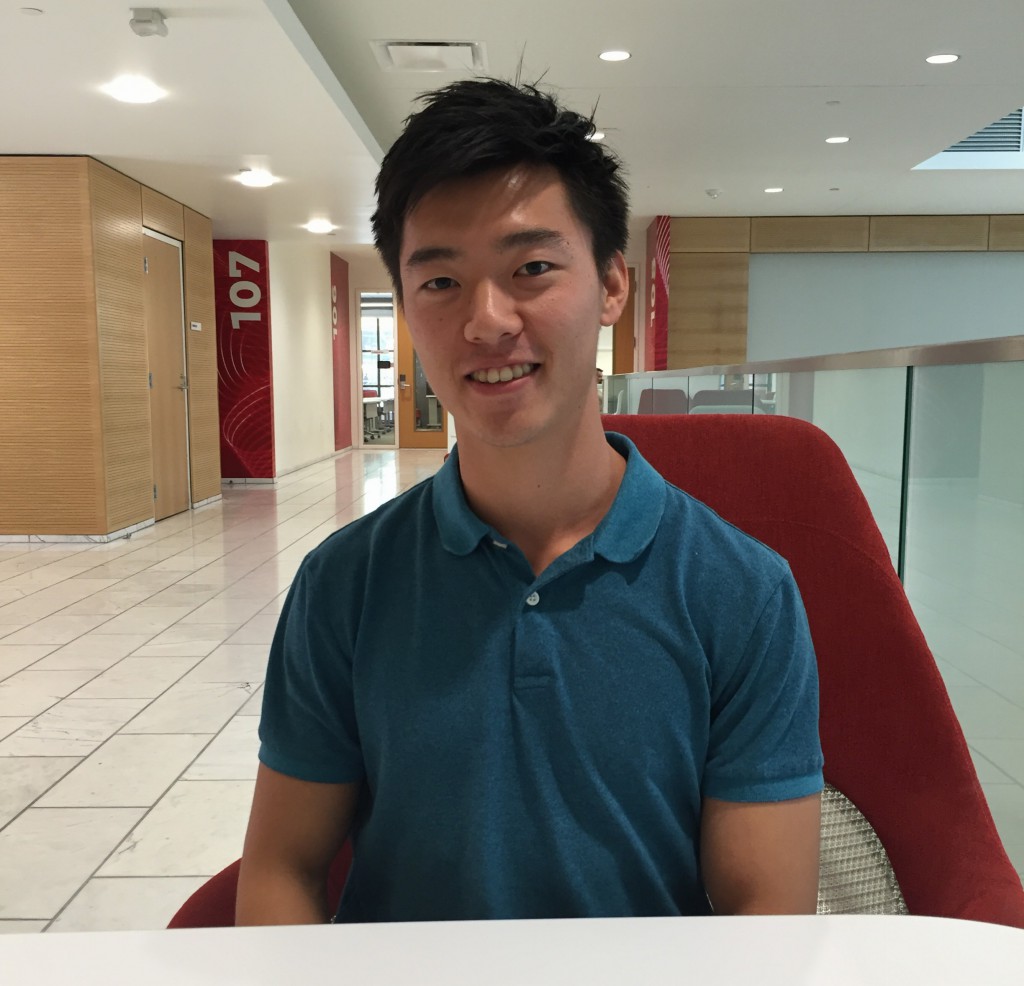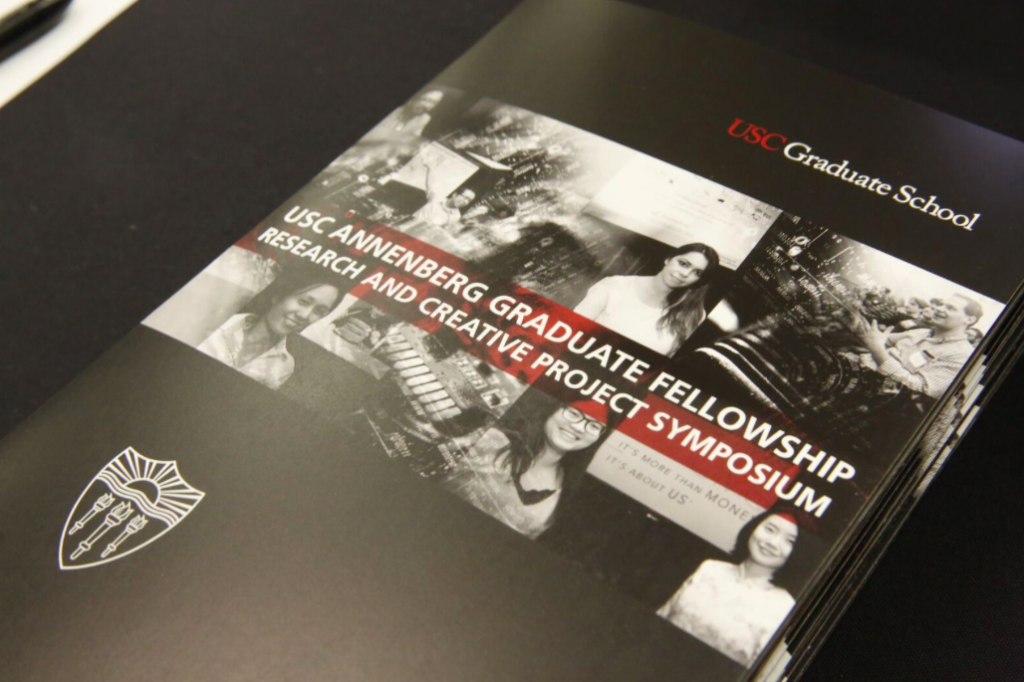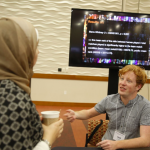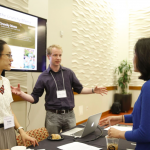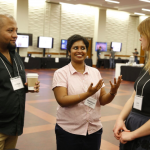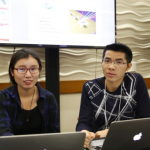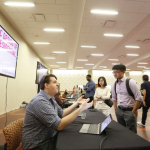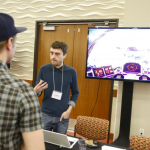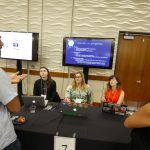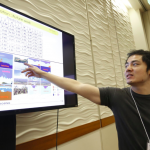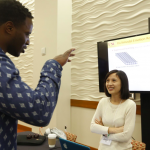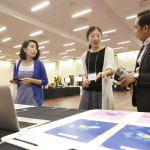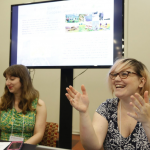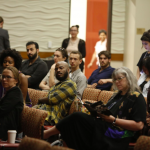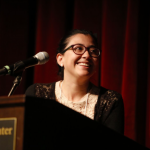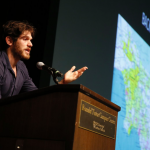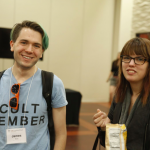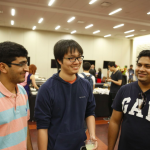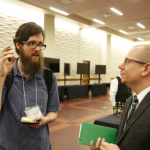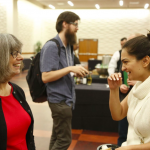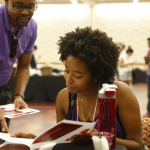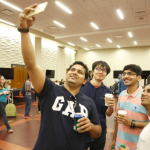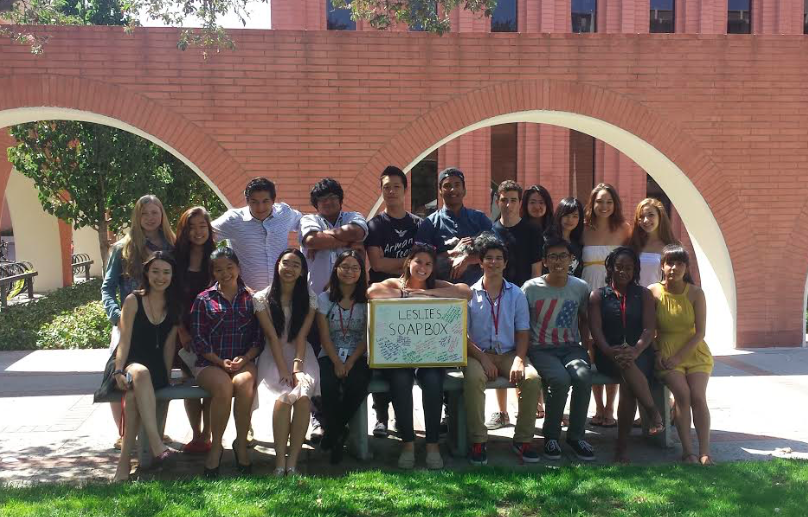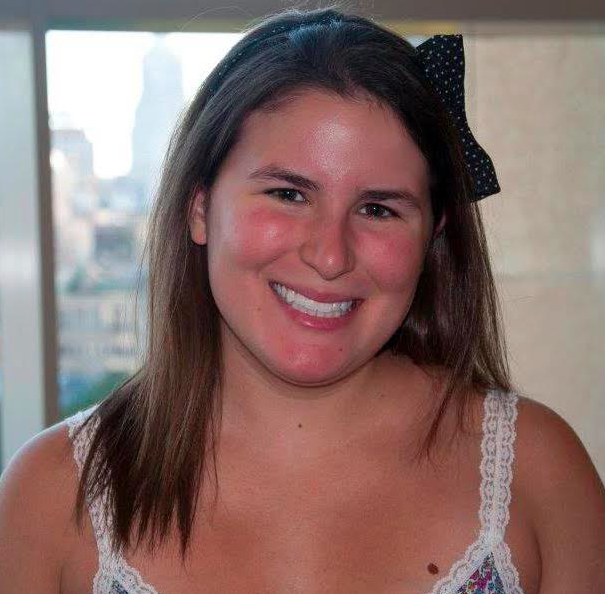On Monday, April 17, 2017, nine distinguished USC Ph.D. candidates across various programs were honored at the Academic Honors Convocation for their superior research, dissertations, academic teaching abilities and strengthening the Trojan community.
Mellon/ACLS Dissertation Completion FellowshipThe Mellon/ACLS Dissertation Completion Fellowship supports outstanding graduate students in the humanities and social sciences in finishing the final year of work on their Ph.D. dissertations. The highly competitive program is funded by a grant from The Andrew W. Mellon Foundation, and recognizes only 65 scholars annually.
Thomas Sapsford, Candidate: Ph.D., Classics, USC Dornsife College of Letters, Arts and Sciences
A dedicated classicist and scholar, Thomas Sapsford analyzes performance in both Green and Roman contexts. His dissertation, “The Life of the Kinaidoi,“ considers the kinaidos/cinaedus, a figure in classical literature noted for effeminacy and the breaking of social taboos. Studying its cultural significance across Greek, Roman, and Greco-Roman Egyptian settings, he has unearthed a popular performance tradition associated with this archetype, which impacts on discussions of ancient sexuality and notions of sexual orientation in the classical world.
Before entering academia, Thomas earned acclaim as a professional dancer and choreographer.
Ford Foundation Dissertation FellowshipThe Ford Foundation Dissertation Fellowship honors doctoral candidates committed to a future of outstanding teaching and research, while embracing diversity as a resource for enriching the education of all students. A coveted distinction, this fellowship is awarded to just 35 recipients each year.
Stephanie Canizales, Candidate: Ph.D., Sociology, USC Dornsife College of Letters, Arts and Sciences
Stephanie Canizales possess a passion for community outreach, as evinced by her impressive body of work as a social scientist and researcher. Her dissertation focuses on the experiences of Central American and Mexican youth who arrive to Los Angeles as unaccompanied minors, and examines their transition into adulthood in changing social, cultural, economic, and political contexts. Throughout her academic career, she has sought to broaden our understanding of youth migration and immigrant integration, as she helps define social membership for future generations.
Phi Kappa Phi Student Recognition AwardFounded in 1897, Phi Kappa Phi is the oldest interdisciplinary honor society at USC. It recognizes scholarship and awards prizes annually to graduate and undergraduate students for creative and scholarly achievements.
Jotheeswari Kothandaraman, Candidate: Ph.D., Chemistry, USC Dornsife College of Letters, Arts and Sciences
Article: “Conversion of Carbon Dioxide from Air into Methanol Using a Polyamine and Homogeneous Ruthenium Catalyst”
Jotheeswari Kothandaraman is helping advance humanity’s response to climate change – a phenomenon driven by the increase of carbon dioxide concentration in Earth’s atmosphere due to emissions from fossil fuels – as evidenced by her role as first author of a scholarly article published in the Journal of the American Chemical Society. Co-sponsored by a team at the USC Loker Hydrocarbon Research Institute that included the late Nobel laureate George Olah, as well as her mentor, G.K. Surya Prakash, she described a system for the production of methanol fuel from carbon dioxide in various sources. For the first time, she and her colleagues demonstrated that carbon dioxide captured from the air can be directly converted to methanol in a 79 percent yield using a homogenous catalytic system.
Brian Pak Yan Leung, Candidate: Ph.D., Neuroscience, USC Dornsife College of Letters, Arts and Sciences
Project:“High Dimensional Analysis of the Myeloid Landscape in Neurodegenerative Diseases”
Aided by a grant from the National Science Foundation, Brian Pak Yan Leung’s innovative research in computation immunology has resulted in the application of exciting new methods for identifying and treating diseases. Working in Professor Terrence Town’s laboratory at USC, Brian collaborated with Professor Burkhard Becher of the Institute of Experimental Immunology at the University of Zurich. He utilized a process called mass cytometry to identify the specific cell types responsible for creating inflammatory lesions leading to chronic, progressive disabilities in patients with multiple sclerosis. This process combines a mass spectrophotometer with fluorescence-activated cell sorter analysis (FACS analysis), enabling scientists to compare up to 100 different probes at a single cell level and resolve cellular subtypes in human blood samples more effectively than any previous technique.
Darshana Sreedhar Mini, Ph.D. student, Cinema and Media Studies, USC School of Cinematic Arts
Article: “Public Interest Television and Social Responsibility:The Search for the Missing Person in Indian Television”
In a paper published in the International Journal of Digital Television, Darshana Sreedhar Mini examines an Indian television show, Pravasalokam (The World of Expatriates), which focuses on the plight of poor migrant workers from the south Indian state of Kerala who travel to the Middle East and subsequently go missing. While stories of Indian nationals working overseas usually focus on highly educated medical professionals or technical experts, Darshana’s work reveals the potential of televisual media to illuminate social issues and mobilize humanitarian efforts. She illustrates how the show blends elements of reality television programs with investigative journalism, and how it invites its audience to actively participate in locating migrant workers and reuniting them with their families – leading to the creation of the nonprofit organization dedicated to this mission.
Rockwell Dennis Hunt Award Awarded to an alumna or alumnus of USC who is pursuing a graduate or professional degree at the university and who is most representative of the Trojan Family’s traditions and values. Yingfei (Fiona) Wang, Candidate: Ph.D., Accounting, USC Leventhal School of AccountingFiona Wang palaces her stellar academic work with a staunch commitment to community outreach as she pursues her doctorate in the USC Leventhal School of Accounting. During the first year of her program, she co-founded Team SixThirty, a nonprofit organization that works with civic and government leaders to build better cities through data analytics. As a part of this groups, she spearheaded a citywide conference that attracted more than 150 professionals and students to discuss the future of open data, analytics, and sustainable urban design.
Since she arrived on campus in 2009, Fiona has impressed the USC community with her outstanding academic achievements. She earned both her bachelor’s and master’s degrees in four years, graduating with distinction as a USC Discovery Scholar. Above all, Fiona is proud to call herself a “loyal Trojan,” while envisioning her future as an advocate for students, in the same way that her professors and mentors inspired her own successes.
University Outstanding Teaching Assistant Award Awarded to three graduate teaching assistants – from diverse areas such as the natural sciences and engineering, the social sciences, and the humanities and arts – who have exhibited consistent excellence in the classroom and thus symbolize the university’s dedication to the education of scholar-teachers.Jenna Ross, Candidate: Ph.D., History, USC Dornsife College of Letters, Arts and Sciences
Jenna Ross models professionalism, accessibility, and empathy as a teaching assistant in the USC Dornsife College. A natural teacher, she has shown exemplary initiative and resourcefulness in the classroom and beyond. She combines a keen intellect and solid command of her field with an extraordinarily warm and approachable personality, as well as a playful sense of humor. By breaking down and communicating complex topics with helpful visual aids and stimulating small group discussions, Jenna fosters a stable and organized atmosphere built on crystal-clear expectation and a genuine sense of eager anticipation. Her approach enhances productivity while retaining a high academic standard, allowing students to worry less about logistics and focus more on learning.
Kamia Smith, Candidate: Ph.D., Materials Science and Engineering, USC Viterbi School of Engineering
Kamia Smith is a beloved figure among materials science students and faculty at the Viterbi School – a friendly, relatable, and guiding presence in an especially demanding discipline. Lauded by her graduate advisor as the best teaching assistant he has encountered in his entire three-decade career, Kamia maintains an extraordinary patience that facilitates effective and uplifting classroom interactions. This unique ability to connect with students on a personal level garners extremely favorable reviews of her teaching style. Her conscientious instruction and helpful demeanor are frequently noted on her highly positive end-of-semester evaluations, including one that offered this particularly impassioned assessment other performance: “Don’t change a thing!”
Saurov Syed, Candidate: Ph.D., Linguistics, USC Dornsife College of Letters, Arts and Science
A tremendously versatile and energetic teacher, Saurov Syed possess a special gift for inspiring students from a broad range of academic backgrounds. Thrice he has earned perfect evaluations spanning multiple courses and professors, proving himself a resourceful and widely admired classroom leader. His students applaud his thorough explanations of complex course material, a practice that ensures a deep and meaningful retention of the information presented in lectures and reading assignments. They extol his presentations as “amazing” and “mesmerizing,” while uniformly praising his exemplary work ethic. As they see it, he “expands the parameters of what someone in his position should be expected to do.”
